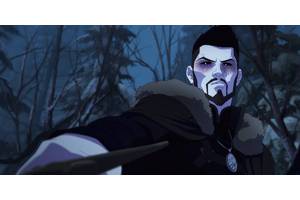What Is Existential Horror? The Subgenre Explained (With Examples Of The Best Movies)
Existential horror is a subgenre that deals with ideas of insignificance, isolation, and the unsettling fact that humanity is just a speck in a dark, uncaring universe; in short, it's perfect horror movie fodder. Horror is filled with subgenres that are as basic as "slasher" to as specific and obscure as "screenlife". There are just so many ways to pluck fear and terror out of the world, almost everything can be molded into something frightening. Existential horror is somewhere in the middle of well-known and vague, an unofficial grouping that includes some famous movies.
Existentialism is not a new or unique idea. Dealing with the very aspects of humanity that are unknowable and lonely has long been a subject of art. It's a philosophical viewpoint associated with 19th and 20th-century philosophers like Søren Kierkegaard and Friedrich Nietzsche. The novelist Fyodor Dostoevsky often includes themes of existentialism in his work and H.P. Lovecraft's horror novels often deal with existentialism, just at a cosmic scale. Other writers like Jack Kerouac, T. S. Eliot, and Franz Kafka also investigated existentialism, and many notable films have used it as a core theme.
Existential Horror Explained — Definition, Criteria & Origin
Existential Horror Movies Have Been Around Almost As Long As The Genre
Existential horror does not have an official definition, but films within the subgenre have a distinct tone and often focus on similar ideas. These are creeping, unsettling horror movies that investigate what it means to be a human. Existential horror often primarily focuses on one person's experience, which separates it from cosmic horror, which tends to explore the horrors that humanity as a whole must confront. Protagonists in existential horror movies are therefore much more lonely individuals, and the films they're a part of are somewhat more somber in tone.
The ambiguity of existential horror means that putting a start date on it can be difficult. After all, there's a case to be made that the majority of horror movies are existential to a degree. Questions of reality and existence permeate all horror films. One of the most common tropes in horror is that someone experiencing supernatural events begins to question the reality of their experience. Existential despair can be found back as far as 1922 with Nosferatu, which was recently remade by Robert Eggers, who also includes many ideas of loneliness and fear of the unknown.
Instead of coming from the stars, the endless void is actually right in people's pockets: the internet and technology.
The modern era has certainly opened up some new frightening avenues for existential horror. Instead of coming from the stars, the endless void is actually right in people's pockets: the internet and technology. There are a myriad of directions for existential horror to go when it considers the almost infinite loop of media, information, and self-curation/delusion that come with having instant access to everything at all times. Movies like Ex Machina have signaled a heightened interest in the subgenre, with films like I Saw the TV Glow proving curiosity has not fallen off.
Famous Examples Of Existential Horror Movies
David Lynch, Ingmar Bergman, And Alex Garland Are Big Names In The Genre
There are several notable examples of existential horror that are packed with themes and ideas related to the philosophy and don't simply touch on it. I Saw the TV Glow, Ex Machina, and Melancholia are recent examples. These films developed by way of David Lynch's existential thrillers like Inland Empire, Mulholland Drive, and Blue Velvet. Before this, movies like The Seventh Seal, Rosemary's Baby, and Don't Look Now were informative insights into how filmmakers thought about existential horror, and how audiences reacted to them. For someone looking to start a journey into existential horror, these films are a great starting place.







